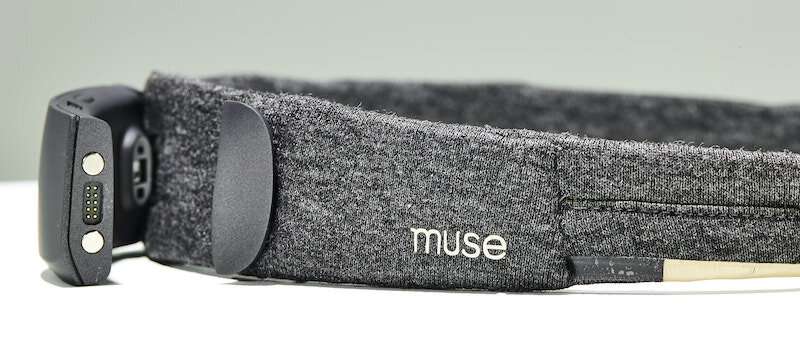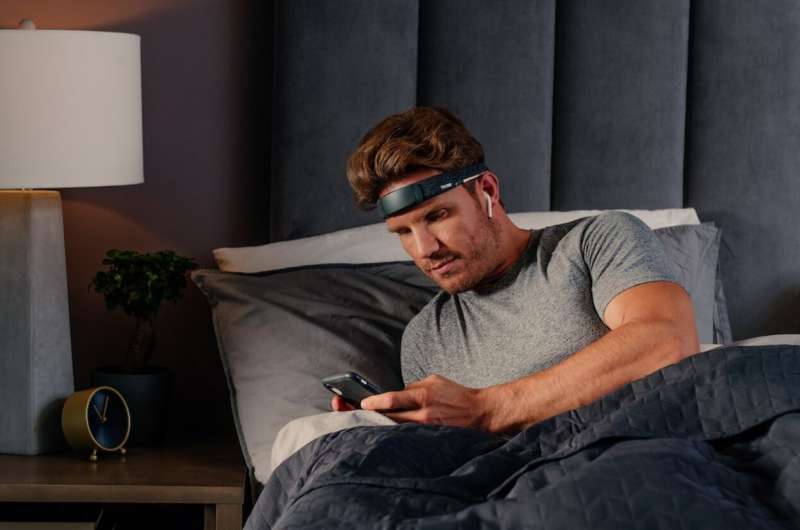January 7, 2020 weblog
CES has solutions to show for better paths to sleep

Getting enough sleep is a real issue for many; a Columbia University Department of Neurology info page referred to estimates from The Institute of Medicine, that between 50 and 70 million Americans alone have chronic sleep problems.
One man's insomnia is another startup's opportunity: Just witness the show of sleep-related tech solutions at CES events. This year, Forbes, in taking a long-range view of the happenings at CES in Las Vegas, did not fail to notice the major umbrella categories evident at the show.
"CES 2020 will be flooded with sophisticated sensors, including devices that can scan and measure calorie intake, glucose levels, driver distraction, body temperature, and even when you're likely to have your next bowel movement. That's not even counting all the sleep tech, from smart mattresses for catching better Zs and stress relievers that help you get to sleep faster."
Hold that last thought. File under the health tech banner of all-you-can-imagine products that help people to sleep faster or better.
Muse, the meditation headband company, is thinking this year about helping you get a better night's sleep with its newly announced Muse S. Muse by Interaxon, which defines itself as a "consumer neurotechnology and meditation company," has announced the device Muse S; it is a brain-sensing band that can impart a healthy pre-sleep experience.
The brain sensing headband is made of soft comfortable fabric with the user's pillow rests in mind.

Muse has been into daytime meditation; this new Muse S adds "journeys" when you want to get off the mat and take a restorative rest. The Muse S' selling point is what the company calls "Go-To-Sleep Journeys." They rock you to sleep, said Tom Bedford in TechRadar, with a combination of ambient sound and soothing narration. They also deliver real-time biofeedback. TechCrunch's Brian Heater said the "Go-to-Sleep Journeys" were essentially guided sleep meditations.
Go-To-Sleep Journeys were designed "to help you learn how to turn off your busy mind and let the world melt away." and the team believes their journey experiences are restorative. "The Go-to-Sleep Journeys respond to your brain activity (EEG), heart rate (PPG), body movements and breathing to bring biofeedback soundscapes and soothing voice guidance," said Marko Maslakovic in Gadgets & Wareables.
Muse S is promoted as a "multi-sensor" meditation device as there is feedback on many points: brain activity, heart rate, breathing, and body movements. Muse S measures these activities to help you know "when you're in the zone."
Watch the video to understand the properties, layer by layer, of soundscape (in this case, water), heartbeat, biofeedback, then "guidance," where a female voice asks you take a moment wherever you are, close your eyes.
The journey choices have soothing titles like "Enchanted Forest" and "Underwater World." While the sounds are different, they share a function of reflecting specific feedback centers, and adding up to a personalized soundscape for you.
The company has set the price as $349 but also have set two prices, one by month, and the other per year, if you also want an expanded access to over 300 meditations and new content released monthly, For that, the price is given as $12.99 USD per month or $94.99 USD per year. The company noted 10 hours of continuous battery life.
Meanwhile, CNET talked to Guirec Le Lous, CEO of Urgotech at the show, to learn that its URGOnight device's neurofeedback method is claimed to have helped people fall asleep 40 percent faster, and cut nighttime sleep interruptions by half. French company Urgotech launched its new sleep-focused product URGOnight.
Components: headband and app available for iOS and Android. CNET said the headband was lightweight; small electrodes automatically adjusted to the size of the person's head.
Interestingly, whereas many other sleep solutions focus on monitoring your sleep patterns, to make recommendations on how the person may change behavior, this URGOnight product takes a different route. Take a little time out of the day to train your brain to produce the brainwaves that are conducive to sleep—that's the product goal.
The system uses neurofeedback therapy and is designed to show a path to identifying and changing behaviors to sleep better through different exercises, via real-time display of your brain activity.
It's to be used 20 minutes a day, three times per week. (Perk: You don't need to wear it at night and the time requirements are not difficult for those with busy schedules.)
Exercises? What are you asked to do? CNET said, "A virtual coach guides you through each one, and offers advice on how to improve your score. It takes about 10 to 15 sessions to begin to see results." The company said 40 sessions were needed for sustainable change but it did not say how the number was determined.
© 2020 Science X Network




















